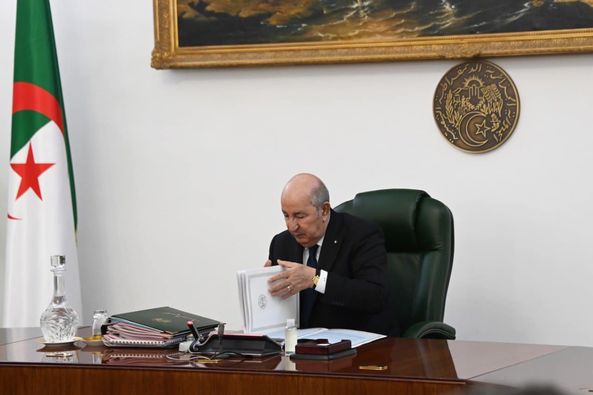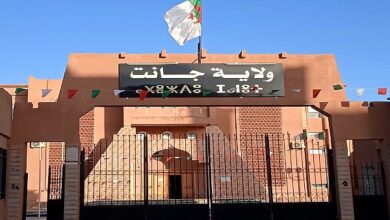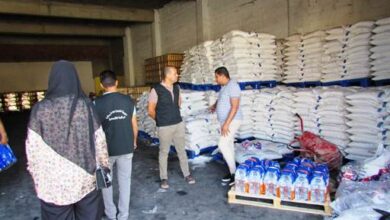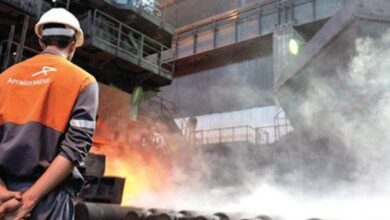2023.. the year of improving the citizen’s livelihood – Algerian Dialogue

During the year 2023, efforts to upgrade the citizen’s standard of living continued, and this is to enhance the gains achieved and to consolidate the social character of the state within the approach aimed at achieving sustainable and balanced development that includes all regions of the country.
The state has focused on raising the purchasing power of citizens, improving care for vulnerable groups, strengthening social security and retirement systems, and improving access to housing and basic public services, with the aim of increasing educational and training opportunities and enabling all citizens to obtain treatment, through many procedures and measures.
This trend translates into the attention paid by the President of the Republic, Mr. Abdelmadjid Tebboune, to the social character of the state. Within this framework, an ambitious program was launched to enhance social gains, especially with regard to meeting the basic needs and services of citizens, while adopting an approach based on improving the quality of these services and ensuring equality in to get it.
Achieving sustainable and balanced development that includes all regions of Algeria
In this field, public policies have been directed in recent years towards supporting the purchasing power of citizens, by raising wages for the benefit of more than 2.8 million employees and contractors, while enhancing tax justice and ensuring coverage of basic needs, especially for vulnerable groups, in addition to supporting various social assistance programmes. Including valuing grants directed to people with special needs and the needy and improving the performance of the alimony fund for the benefit of divorced women who have custody of children.
In the same context, the President of the Republic highlighted the significant efforts made in the field of social transfers, which represented 18.45% of the state’s general budget for the year 2023, in order to confront the challenges resulting from the high prices of basic materials on the international market and avoid their impact on the citizen’s standard of living.
Regarding policies related to human development, it is worth recalling the special attention paid to developing the education sector, which the Algerian Constitution enshrined is free, and the state’s efforts to upgrade higher education services, scientific research and vocational training, especially by supporting industrial and technological innovation and adapting to the requirements of the labor market and the objectives of the comprehensive economic development policy. As well as improving the social and professional status of members of this important sector and valuing university scholarships for the benefit of more than 1,300,000 students.
Recognizing the importance of enhancing interest in society and its multifaceted concerns, President Tebboune also stressed that the universality of the challenges facing the social function of states and the pressure imposed by the requirements of economic development require collective and intensive work in order to find the best formulas and practices to improve social support mechanisms and upgrade means of protection, in particular In its part, it is directed to vulnerable and disadvantaged groups.
In this aspect, the public authorities, as part of their concern for vulnerable and needy groups, worked to align the wage network with purchasing power first, and then with continuous support for the socially vulnerable group, by taking into account the value of work and driving production as basic references for raising salaries.
To embody these goals on the ground, an increase in salaries was approved over the years 2023 and 2024, ranging between 4,500 DZD and 8,500 DZD depending on the grade, which makes the increases scheduled during the years 2022, 2023 and 2024 reach a rate of 47%.
The announced wage increases, in addition to raising retirement grants and reducing income taxes, aim to improve the purchasing power of the Algerian citizen. Note that no wage increase has been recorded in Algeria for about 10 to 15 years, as confirmed by the President of the Republic, who stressed that the state “is waging a real battle to protect the purchasing power of the citizen by combating all forms of speculation and fighting corruption in all its manifestations.”
To preserve the dignity of the citizen, the minimum retirement grant was also raised to 15,000 DZD for those who were earning less than 10,000 DZD and to 20,000 DZD for those who were earning 15,000 DZD, to be consistent with the minimum wage, which in turn increased from 18,000 to 20,000 DZD. Since 2021, the unemployment grant has also been raised from 13,000 to 15,000 dinars, net of all fees, in addition to the state bearing the burden of health coverage for the unemployed during the period of their benefit from the grant.
These efforts and gains come to reaffirm that the sociality of the Algerian state is a fixed and established principle, based on the statement of November 1, 1954, which made Algeria maintain this principle since independence and always work to adapt its contents to current requirements, especially in accordance with the constitutional amendment of November 1, 2020.
#year #improving #citizens #livelihood #Algerian #Dialogue
#oussama_boulegheb #elhiwardz #alakhibariat.xyz #elhiwar #elhiwar-en



